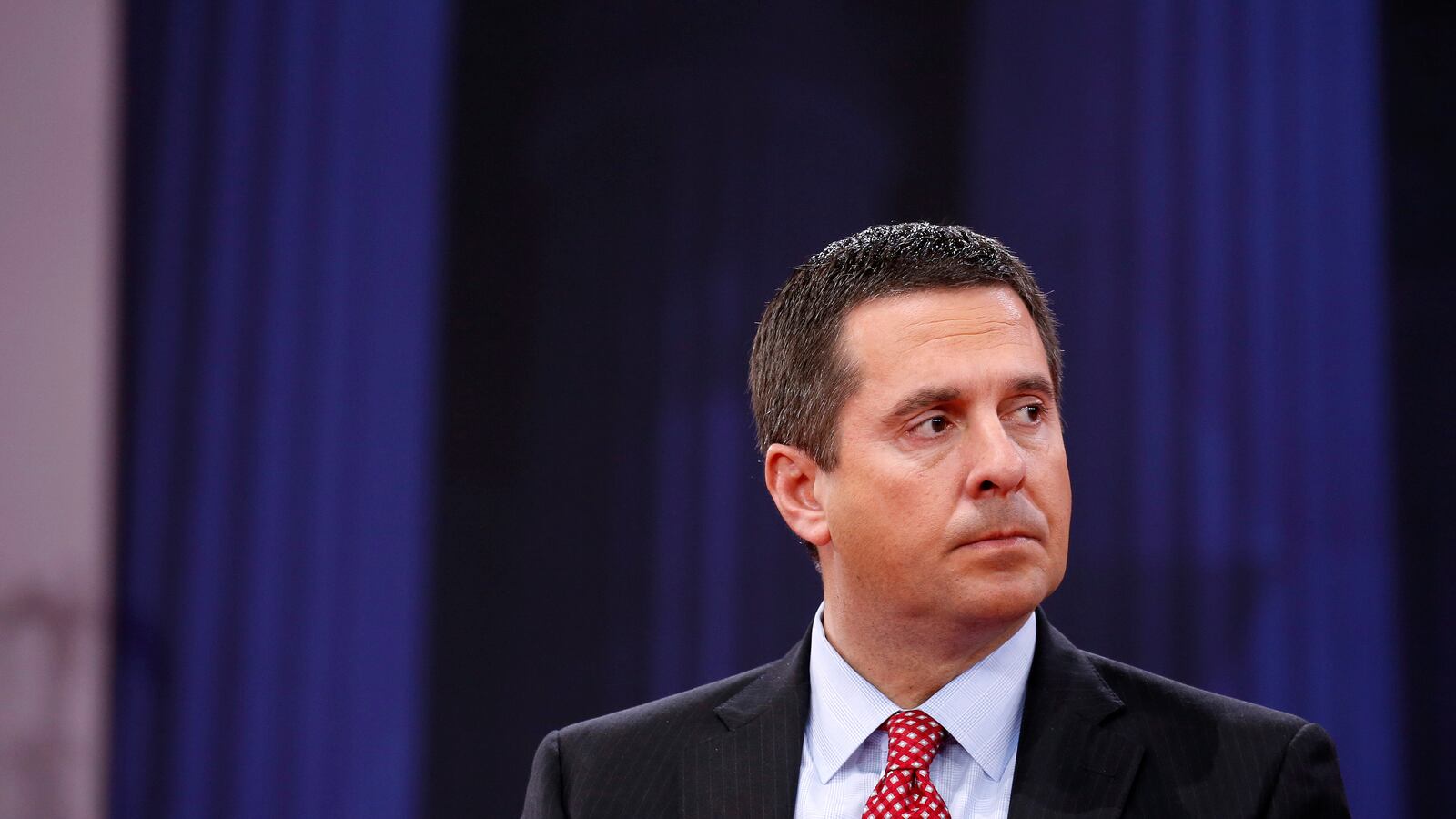Two weeks after President Donald Trump blocked its release on national security grounds, the House Intelligence Committee on Saturday released a 10-page memo intended to counter Republican claims that the FBI acted inappropriately in pursuing a warrant to surveil former Trump campaign aide Carter Page.
The memo, penned in January by Rep. Adam Schiff, the committee’s ranking Democrat, was released with redactions on Saturday afternoon after weeks of negotiations between the committee and the Justice Department over what material would be released to the public. Trump had said earlier this month that the unredacted memo “contains numerous properly classified and especially sensitive passages.”
Schiff’s memo was written to counter a four-page Republican memo, written by Rep. Devin Nunes, which alleged that the FBI’s decision to include allegations made in a dossier prepared by British ex-spy Christopher Steele in a FISA warrant application called into question the “legitimacy and legality of certain [Justice Department] and FBI interactions with the Foreign Intelligence Surveillance Court.”
The Justice Department had argued against that memo’s declassification, citing “grave concerns about material omissions of fact that fundamentally impact the memo’s accuracy.”
Moments after he was fêted as a conquering hero at the Conservative Political Action Conference, the memo’s release on Saturday was a body blow to his credibility as a government watchdog. The Schiff-authored memo undermines many of the claims made in Nunes’ document. Among them, the memo declares that Steele’s intelligence reporting “did not inform the FBI’s decision to initiate its counterintelligence investigation,” and that the special counsel investigation into Page’s potential links to the Russian government were based on “troubling” information unrelated to the dossier.
Schiff’s memo also appears to undercut Nunes’ argument that the FBI had hidden the fact that Steele’s had been backed by Trump’s political opponents from the FISA court.
“Far from ‘omitting’ material facts about Steele,” the memo states, “DOJ repeatedly informed the Court about Steele’s background, credibility, and potential bias.” The Department of Justice, the memo alleges, explained Steele’s financial relationship with those who had “likely political motivations” behind the dossier, and that the FBI still had reason to find Steele credible on matters relating to Russia.
The memo states that “senior FBI and DOJ officials have repeatedly affirmed to the Committee the reliability and credibility of Steele’s reporting,” and called the process to vet his allegations—including those against Page—as “rigorous.”
Nune’s memo had also claimed that the FISA materials “relied heavily” on news articles based on leaks from Steele himself, an allegation that Schiff’s memo undercuts. “DOJ referenced [the] article,” the memo states, “not to provide separate corroboration for Steele’s reporting, but instead to inform the Court of Page’s public denial of his suspected meetings in Moscow.”
In a statement, Schiff said that the release of his memo “should put to rest any concerns that the American people might have as to the conduct of the FBI, the Justice Department and the FISC.” His review, he said, “failed to uncover any evidence of illegal, unethical, or unprofessional behavior by law enforcement and instead revealed that both the FBI and DOJ made extensive showings to justify all four requests.”
In a statement to The Daily Beast, the White House labelled the Schiff memo an attempt to “undercut the President politically,” but noted that Trump still supported its release.
“This politically driven document fails to answer serious concerns raised by the Majority’s memorandum about the use of partisan opposition research from one candidate, loaded with uncorroborated allegations, as a basis to ask a court to approve surveillance of a former associate of another candidate, at the height of a presidential campaign,” said White House Press Secretary Sarah Huckabee Sanders. “As the President has long stated, neither he nor his campaign ever colluded with a foreign power during the 2016 election, and nothing in today’s memo counters that fact.”
The president had declared the release of Nunes’ memo “vindicated” his denials of any contact or collusion with the Kremlin during the 2016 presidential campaign—although multiple Republican members of the House Intelligence Committee didn’t see it that way.
“I actually don’t think it has any impact on the Russia probe,” Rep. Trey Gowdy (R-S.C.) said on CBS’ Face the Nation at the time. “There is a Russia investigation without a dossier... The dossier has nothing to do with the meeting at Trump Tower. It also doesn’t have anything to do with obstruction of justice, so there’s going to be a Russia probe with or without the dossier.”
Nunes disputed Gowdy’s assertions at the time—and the newest memo’s assertions upon its release.
“The American people now clearly understand that the FBI used political dirt paid for by the Democratic Party to spy on an American citizen from the Republican Party,” Nunes said in a statement. “It defies belief that the Department of Justice and FBI failed to provide information to a secret court that they had provided to an open federal court regarding their past interactions with Mr. Page.”






